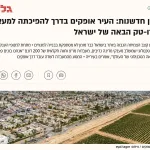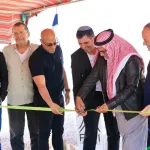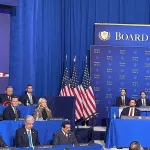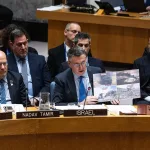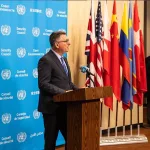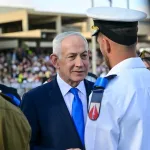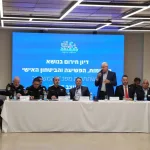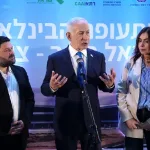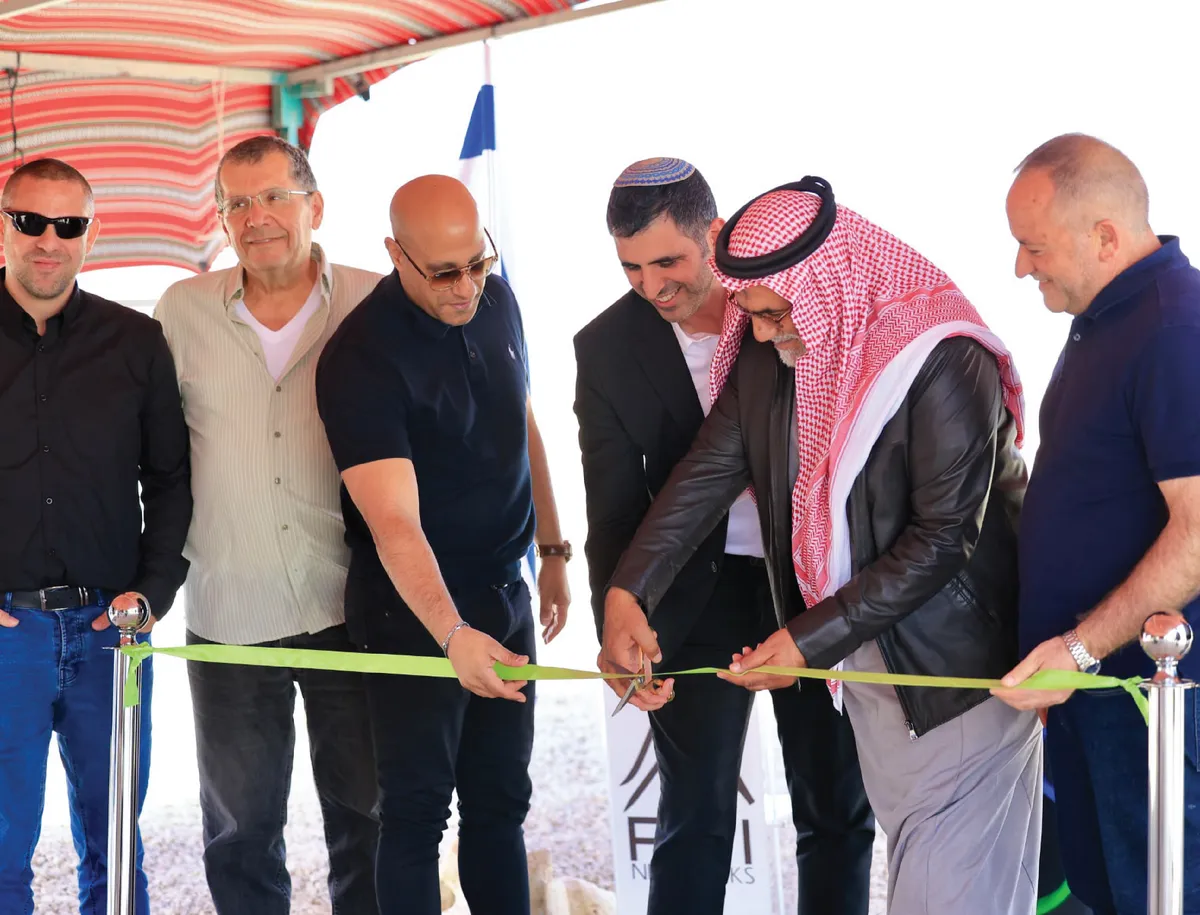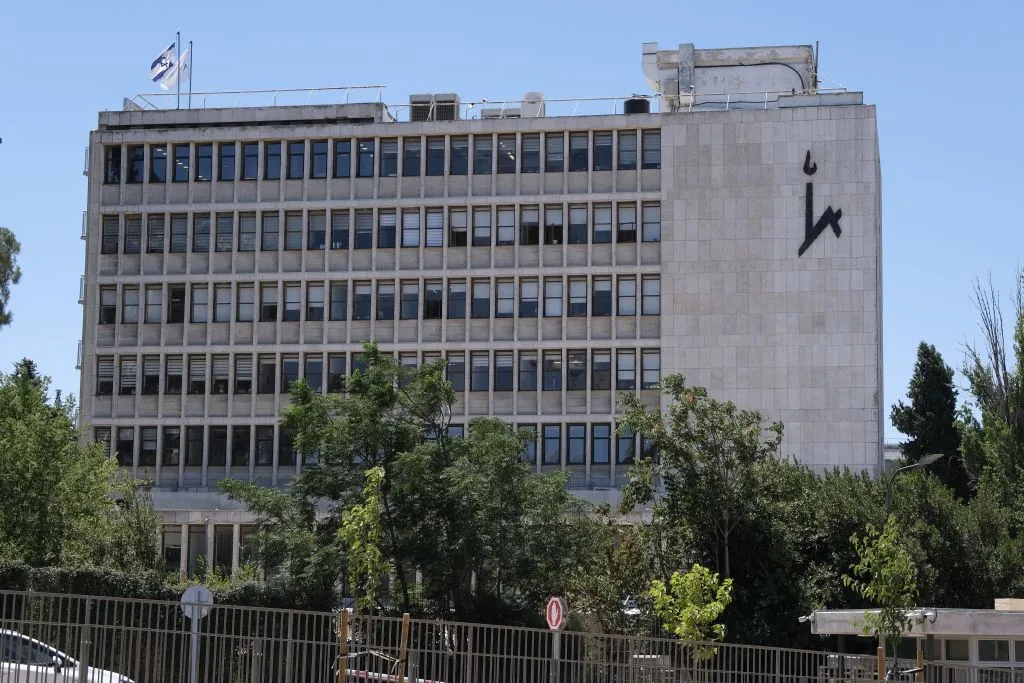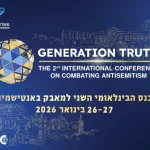The Inter-Ministerial Committee for the Review of Natural Gas Policy and Enhancement of Energy Security, chaired by Director General of the Ministry of Energy and Infrastructure, Yossi Dayan, has completed work on its Draft Report, which was published today (Wednesday) for public comments. The report reflects professional recommendations that emphasize meeting the requirements of the domestic market, strengthening energy security infrastructure, maintaining a stable and investment-friendly regulatory environment, bolstering international connectivity through the infrastructure links with new countries, promoting competition through effective secondary markets, and encouraging further exploration for natural gas in view of its economic, political and geopolitical benefits. Though different perspectives were offered by committee members on issues such as competition, the environment, and investments in energy security, the report faithfully represents the opinions of the majority of the committee members on key issues.
Minister of Energy and Infrastructure, Eli Cohen: “the natural gas market is a strategic asset for the State of Israel, bolstering our economic and diplomatic status in the world in general and in the Middle East in particular. The committee’s recommendations reflect policies that will secure sufficient reserves for the domestic market, encourage exploration for new natural gas fields, and guarantee low prices for the Israeli market”.
Director General of the Ministry of Energy and Infrastructure, Yossi Dayan: “the recommendations of the committee, whose work I have had the privilege of leading, express a balance between the central principle of securing the needs of the domestic market and ensuring an attractive environment for further investments in exploration and production, which in turn will help bolster energy security and competition. We did not shy away from dealing with difficult questions, and we are ready to present our conclusions to the public in the coming weeks and eager to listen to its comments”.
Among the recommendations included in the Draft Report:
- Natural Gas Exports – the committee recommends keeping the domestic market supply obligations at the current level (approximately 440 BCM). This policy, in addition to existing sales agreements that are surplus to the existing supply obligations, as well as additional mechanisms to ensure adequate annual and daily supply, is expected to fully meet the domestic market’s needs for the duration of the committee’s planning horizon (25 years). With regard to domestic supply obligations from individual fields, the committee recommends to broadly maintain the existing thresholds with regard to new discoveries, while allowing obligations to be reduced against the establishment of import/export infrastructure connecting the Israeli market to new destinations.
- Energy Security – the committee recommends the adoption of a broad definition of energy security, taking into consideration both short- and long-term considerations and a variety of scenarios, and recommends further work to promote investment in infrastructure in order to increase redundancy. The committee also recommends work to be done around a holistic view of energy security, which also takes into account nuclear or other low-emission energy sources.
- Competition – the committee defines the goals of maintaining or lowering the current level of domestic natural gas prices and the increasing the number of independent natural gas marketers, as well as recommending specific policy measures, such as the establishment of an exchange for secondary trade in natural gas.
- All recommendations are based on the principle of encouraging investment in exploration and development of natural gas reservoirs.
The inter-ministerial committee’s members include the Director of the Natural Resources Administration and Director of the Natural Gas Authority at the Ministry of Energy and Infrastructure; Chairman of the Electricity Authority; Chairman of the National Economic Council; Head of the Budget Division at the Ministry of Finance; Director-General of the Ministry of Environmental Protection; Head of the Competition Authority; Assistant Attorney-General for Economic Affairs at the Ministry of Justice; National Security Advisor; and a representative from the Bank of Israel (observer).
The subjects under discussion as part of the committee, which began its deliberations in February of last year, include both the policy on the export of natural gas from new discoveries, in line with Government Decision 4442, and additional issues such as energy security, competition and environmental aspects.
The Draft Report present the accomplishments achieved so far through the application of the existing natural gas policy, as determined by previous committees and implemented by the ministry:
- Shifting the bulk of electricity generation in Israel from expensive and polluting coal to natural gas.
- Discovery and development of new reservoirs, as well as expanding production from existing reservoirs
- Creating a competitive, thriving natural gas market, while maintaining a low and stable price level for energy consumers, even during a global energy crisis.
- Cumulative state revenue of over 25 billion N.I.S. to date, with tens of billions N.I.S. more projected to follow in the coming decades.
- Strengthening Israel’s regional, geopolitical and international status.
At the same time, the committee has identified several challenges facing the natural gas market, including: strengthening energy security, encouraging investment in a complex geopolitical reality, promoting competition in the natural gas market, as well as balancing the reliance on natural gas with a commitment to lower greenhouse gas emissions. The report indicates that the natural gas reserves in Israel’s waters, estimated at approximately 850 BCM according to the Ministry of Energy and Infrastructure (compared to over 1,000 BCM estimated by the companies), are expected to suffice both for the domestic market’s needs and for existing export commitments within the scope of the prediction.
The deadline for the submission of written comments by the public to the Draft Report, within the framework of a transparent, equitable procedure, is May 29. Details on how to submit comments as well as the full Draft Report may be found at the attached link.
https://www.gov.il/he/pages/os-090425. At the end of the comment period, parties that submitted written comments will be invited to make a brief presentation of their arguments before the committee.
The publication of the Draft Report is accompanied by a BI platform presenting the various domestic natural gas demand scenarios that were used by the committee and are described in chapter 2 of the Draft Report. The platform may be accessed at the attached link.

